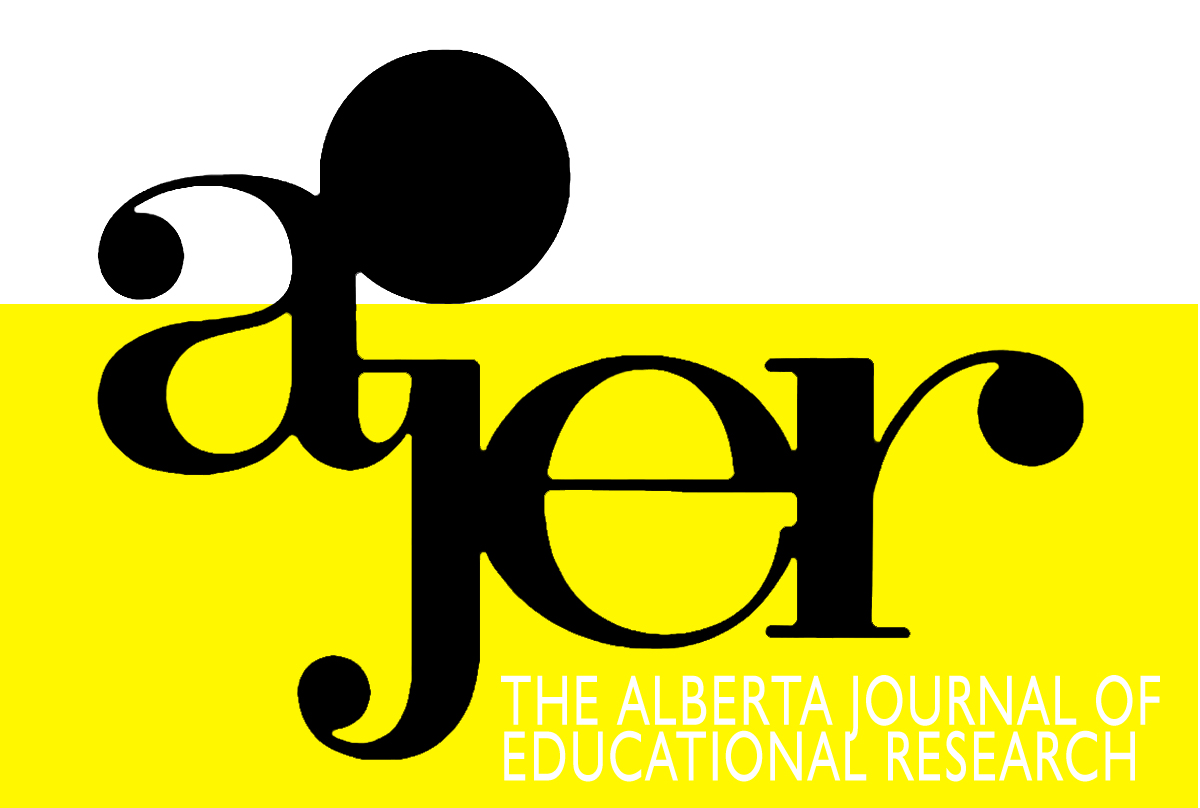The Grade 3 Provincial Achievement Tests: In Need of Revamping?
DOI:
https://doi.org/10.55016/ojs/ajer.v58i3.55631Keywords:
English language learners (ELLs), vocabulary, writing, early literacy, assessmentAbstract
This article advances an argument for retaining but revamping the grade 3 Provincial Achievement Tests (PATs). Alberta’s demographic landscape is rapidly changing to include significant numbers of English language learners who are still in the early stages of developing English language proficiency at grade 3. Online tools are used to generate vocabulary profiles from exemplars of three standards of achievement: excellent, proficient and satisfactory. These are compared along various indices of vocabulary diversity. The findings provide striking evidence for rethinking the place of vocabulary in the overall assessment framework of the PATs, and in turn, for emphasizing the need for direct and explicit vocabulary instruction from the earliest of formal schooling experiences for immigrant children and the children of immigrants.Cet article avance un argument pour conserver, mais refaire, les examens provinciaux de la troisième année. Le paysage démographique de l’Alberta change rapidement en intégrant un nombre significatif d’apprenants de l’anglais qui en sont encore aux premières étapes de l’apprentissage de la langue anglaise en 3e année. Des outils enligne génèrent des profils lexicaux à partir d’exemples de trois niveaux de rendement; excellent, compétent et satisfaisant. Ceux-ci sont ensuite comparés en fonction de différents indices de diversité lexicale. Les résultats offrent des preuves convaincantes selon lesquelles il faudrait repenser la place du vocabulaire dans le cadre global d’évaluation des examens provinciaux. Ils soulignent le besoin pour un enseignement direct et explicit du vocabulaire dès le début de la scolarisation formelle des enfants immigrants et des enfants d’immigrants.
Downloads
Issue
Section
License
UNIVERSITY OF ALBERTA COPYRIGHT LICENSE AND PUBLICATION AGREEMENT
If accepted, authors will be asked to sign a copyright agreement with the following points:
A. Where there is any inconsistency between this Copyright License and Publication Agreement and any other document or agreement in relation to the same subject matter, the terms of this Agreement shall govern.
B. This document sets out the rights you are granting in relation to publication of your article, book review, or research note entitled (the “Article”) through inclusion in the academic journal titled Alberta Journal of Educational Research (the “Journal”) published through the Faculty of Education, representing the Governors of the University of Alberta (the “Journal Editor”).
C. There will be no payment to you for this publication and grant of rights. In consideration of the agreement to publish the Article in the Journal:
1. You are warranting that:
- the content of the Article is your original work, and its content does not contain any material infringing the copyright of others; or, where the Article is not entirely your original work, you have obtained all necessary permissions in writing to grant the rights you are giving in this agreement;
- the content of the Article does not contain any material that is defamatory of, or violates the privacy rights of, or discloses the confidential information of, any other person;
- the Article has not been published elsewhere in whole or in part, and you will not allow publication of the Article elsewhere without the consent of the Journal Editor;
- the names of all co-authors and contributors to the Article are:
2. You agree to license the copyright in the Article to the Journal Editor, on a worldwide, perpetual, royalty free basis; and to the extent required by the terms of this agreement. You shall retain the right at all times to be acknowledged as the/an author of the Article.
3. You further agree that the Journal Editor has the entitlement to deal with the Article as the Journal Editor sees fit, and including in the following manner;
- The right to print, publish, market, communicate and distribute the Article and the Journal, in this and any subsequent editions, in all media (including electronic media), in all languages, and in all territories, ing the full term of copyright, and including any form of the Article separated from the Journal, such as in a database, abstract, offprint, translation or otherwise, and to authorize third parties to do so;
- The right to register copyright of the Journal;
- The right to edit the Article, to conform to editorial policy as the Journal Editor sees fit.
4. If any co-author or contributor to the Article does not sign this agreement, the Journal Editor reserves the right to refuse to publish the Article.



